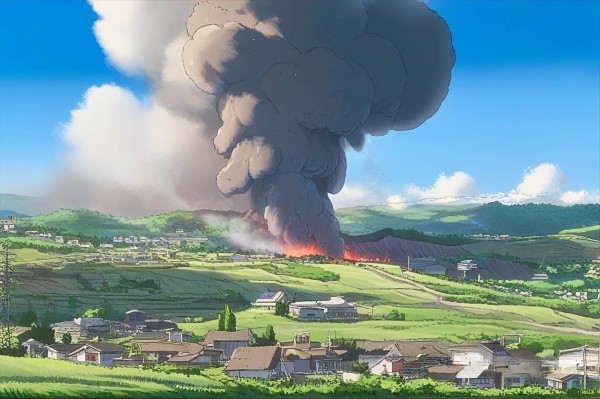Iran’s Plan to Strike Back Against the U.S.
Iran’s Military Preparations Following U.S. Attacks
Loading...

Tensions escalate as Israel assassinates a Hezbollah commander and the Lebanese group responds with a large missile attack.
Hezbollah launched over 200 missiles and rockets into northern Israel from southern Lebanon, marking one of their most significant attacks on the region since the 2006 war.
The day before, Israel had killed Taleb Abdullah, a top Hezbollah commander and the highest-ranking member of the group to be assassinated since October 8.
Recent escalation of conflict between Israel and Lebanon has occurred on Tuesday and Wednesday, coinciding with ongoing efforts to negotiate a ceasefire between Israel and Hamas.
Israel has been responsible for the deaths of over 37,000 Palestinians in Gaza since Hamas initiated an attack on Israel on October 7. Hamas killed 1,139 people and captured around 240 individuals.
Israel is being accused of committing genocide in Gaza by South Africa at the International Criminal Court.
According to analysts interviewed by Al Jazeera, if a ceasefire is reached in Gaza, Israel may redirect its military attention to Lebanon, where it has been engaged in conflicts with Hezbollah since October 8.
The exchanges between Lebanon and its southern border are not always equal or reciprocal.
In an April investigation, Al Jazeera discovered that Israel had conducted over five attacks on Lebanon for each attack carried out by Hezbollah.
Israel has reportedly killed around 300 members of Hezbollah and over 70 civilians, while Israel has suffered approximately 15 soldier and 10 civilian casualties.
Israeli individuals who advocate for aggressive military actions.
Analysts believe that Israel would have difficulty escalating the conflict with Lebanon without first reaching a ceasefire in Gaza, as tensions continue to rise along the border.
Mouawad believes that Israel will not escalate their conflict with Lebanon while there is still fighting in Gaza. However, once a ceasefire is reached in Gaza, Israel will likely focus its attention on Lebanon.
Prime Minister Benjamin Netanyahu's government in Israel is facing internal scrutiny as the school year nears and over 90,000 individuals are still unable to return to their homes in northern Israel.
Politicians believe Hezbollah must be moved away from the border before civilians can safely return, even though many have chosen not to come back.
Netanyahu stated recently that Israel is ready for a significant military operation along the Lebanese border.
According to a poll in an Israeli newspaper, the majority of Israelis are in favor of eliminating Hezbollah, as stated by Karim Emile Bitar, a professor at Saint Joseph's University in Beirut.
Some members of the Israeli war cabinet also hold a hawkish stance.
Israel's chief of staff, Herzi Halevi, informed military officials in early June that a decision will soon need to be made and the Israeli military is well-prepared for it.
This refers to the adverse outcomes or results that can occur as a result of certain actions or decisions.
Advocating for military action against Hezbollah and Lebanon does not guarantee a win for Israel.
Bitar expressed that engaging in war would be extremely harmful and could cause significant suffering for both the Lebanese and Israelis.
Israel will face difficulties in occupying south Lebanon, as they have not learned from their past mistakes in history.
Israel launched military operations in southern Lebanon in 1978 and 1982 as part of efforts to expel Palestinian factions during the nation's civil conflict.
Hezbollah, a Lebanese Shia group closely aligned with Iran, was established in 1982 as a reaction to Israel's invasion.
Israel occupied south Lebanon from 1985 to 2000, but withdrew after being pushed back by Hezbollah and other Lebanese forces.
Bitar warned that an invasion could result in unforeseen consequences for Israel.
Hezbollah is considered to be the most powerful non-state actor in the world, with much stronger military capabilities compared to Hamas.
So far, the attacks in Israel have mainly targeted military areas in the north, but targeting civilian areas like Tel Aviv would pose a greater challenge for Israel.
Amal Saad, author of Hizbu'llah Politics and Religion, stated that there is a divide within Israel as northern settlers are angry with the government.
Launching rockets at a populated city could exacerbate existing divisions and demonstrate the potential consequences for the rest of Israel. Israel cannot handle even a fraction of the damage that Gaza or Lebanon endure.
Recently, Hezbollah has been using new weapons, including anti-aircraft missiles, that they say caused Israeli fighter jets to retreat.
Saad described the move as symbolic as it challenged Israel's dominance in the air. In addition, Hezbollah has successfully taken down several Israeli drones in the past few weeks.
A broader conflict in Lebanon could have significant repercussions for both Israel and Lebanon.
American authorities have cautioned that an increase in hostilities against Hezbollah may result in involvement from Iran and other allied forces in the area.
If a war were to break out, Lebanon's already struggling economy would be in an even worse condition, as Israel would likely cause significant destruction. This was stated by retired brigadier general Mouawad.
Lebanon is unable to bear the consequences of its actions.
Editor
Iran’s Military Preparations Following U.S. Attacks
Troops remain in five strategic locations, raising fears of renewed tensions and long-term occupation.
Opposition forces have taken control of the capital after a significant offensive. Here is how it unravelled.
